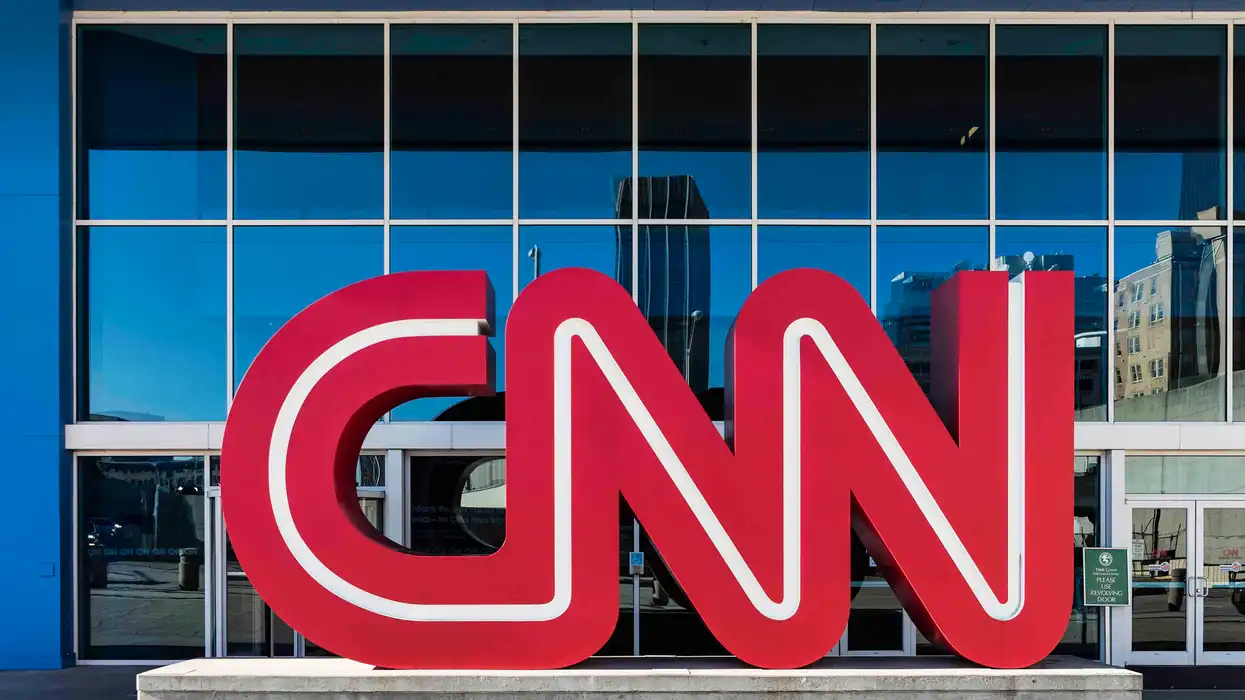
Photo by John Greim/LightRocket via Getty Images

No disclosure necessary?
Editor's note: This article has been updated with corrections about the employment status of the CNN analysts and with additional information on Juliette Kayyem's status with ICSS. See updates within the original story.
Several of the so-called national security experts at CNN that you see on television every night have direct links to the nation of Qatar, a terror-funding, Islamist enclave in the Middle East that has placed itself on the warpath against America's most important regional allies.
But you would never know about these connections, because none of the CNN regulars disclose their financial and/or institutional ties to Qatar when they appear on the airwaves. And off air, they are also not forthcoming about their Qatar-backed connections. Even when it comes to discussing issues where they have a clear conflict of interest, such as commenting on Israeli, Saudi, or UAE affairs, these CNN regulars have no issue going to bat against Qatar's rivals, while never mentioning that their editorial freedom is restricted or that they are personally compromised.
These four CNN regulars double as Qatar-tied propagandists, but you would never know it if you only watched CNN.
Update: This article originally named all four analysts as "contributors." This has been corrected to "regulars," as CNN has responded in email that Ali Soufan and Mehdi Hasan are not paid contributors but guests. This article also stated that two analysts are "full-time" employees. CNN states that neither Juliette Kayyem nor Peter Bergen are full-time employees; that phrase has been removed.
Ali Soufan
A CNN regular who was prominently featured in the network's anti-Saudi Arabia documentary, Ali Soufan is the executive director of the Qatar International Academy for Security Studies (QIASS), which is based in Doha and funded by the Qatari regime. Oddly, the leadership roster at the state-controlled Qatari institution is almost identical to his U.S.-based Soufan Group.
According to the Wall Street Journal, Soufan has a "personal relationship" with the top leadership of Qatar.
Soufan, like his Qatar-backed colleagues, frequently rails against the Saudis, Qatar's top rival, for the killing of Jamal Khashoggi. He has also pushed debunked conspiracy theories about Saudi Arabia hacking into the personal information of Amazon CEO Jeff Bezos.
Mehdi Hasan
CNN regular Mehdi Hasan is a longtime presenter for Al Jazeera, the powerful Doha-controlled state media entity that was the favorite network of deceased al Qaeda chief Osama bin Laden. Hasan's employer pushes out a steady stream of pro-Islamist, anti-Semitic propaganda. As a state-controlled institution, its founding and continuing purpose is the advancement of Qatar's national interests.
"Mr. Hasan works for al Jazeera, the Qatari-owned media enterprise that advances the interests of the state and its royal family. When he speaks, he's no less a government spokesman than Kellyanne Conway or Sarah Sanders," explained David Reaboi of the Security Studies Group in a Washington Times column last week.
"But the government he represents — to millions of unsuspecting American viewers — has long promoted the Muslim Brotherhood, funds the bloodthirsty designated terror group Hamas, has helped al Qaeda and the Taliban fundraise, and is relentlessly hostile to American interests," he adds.
Juliette Kayyem
Kayyem, a CNN national security analyst, is (or was; see update below) a board member of the the International Centre for Sport Security (ICSS), a front group controlled by Qatar that is an influence operation to secure and defend Qatar's 2022 World Cup bid. Kayyem has regularly spoken on behalf of the organization and has been a media point of contact for the shadowy group. She has not been forthcoming about the reality that the ICSS is a Doha-controlled institution. A 2015 flyer from the group presents Kayyem as part of a group of "ICSS spokespeople" who can answer questions about a forthcoming two-day summit.
The leader of ICSS — which again, claims to be a sports-promoting outfit — is Mohammed Hanzab, who has a background as an intelligence and defense specialist in the Qatari military. Hanzab previously served as the president of Ali Soufan's QIASS.
Kayyem regularly takes to the airwaves to bash Qatar's rivals and has transformed her social media accounts into a one-stop shop for anti-Saudi Arabia talking points. When discussing issues involving Middle East politics, Kayyem does not disclose that she is on the board of a state-run Qatari institution.
Update: CNN has responded in email that Juliette Kayyem is no longer on the ICSS board. Her official biographies at both CNN and Harvard, where she lectures, have been altered. Until publication of this story, both bios said that she was currently a board member. Her Harvard bio now indicates that she was a board member until 2015. CNN's response to CR states that her "contract" with ICSS ended several years ago. ICSS tweeted that she joined the board in 2012. If she was on the board from 2012 to 2015, as her Harvard bio now indicates, then she was on it while running for governor of Massachusetts in 2014. The PDF linked above shows that she was on the board at least through October 27, 2015.